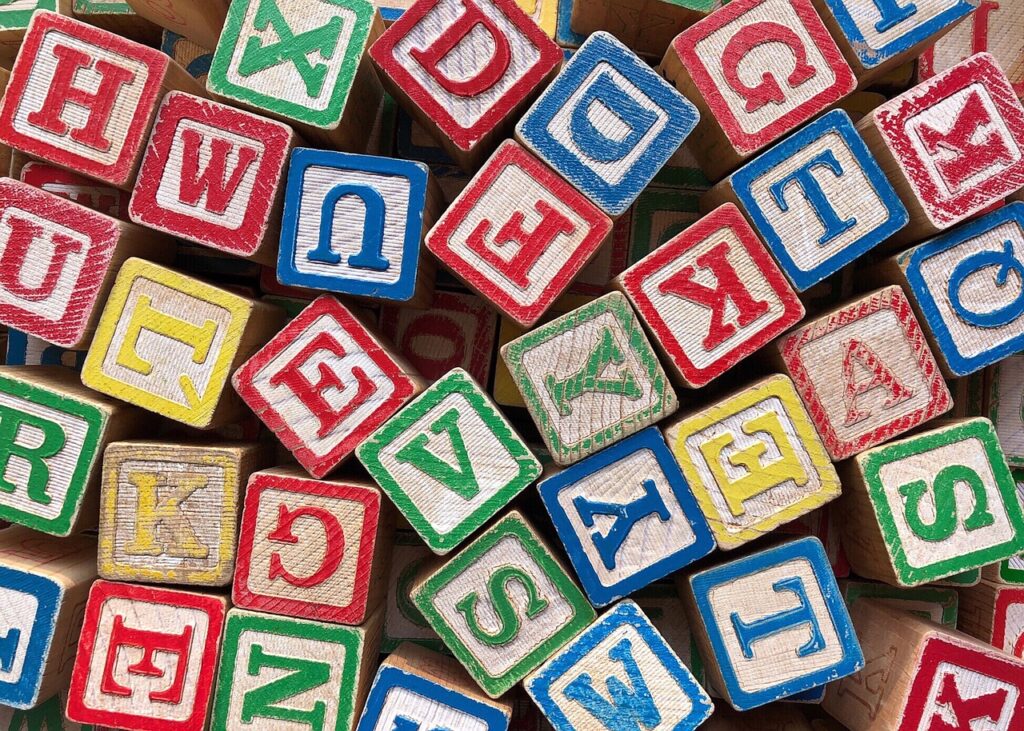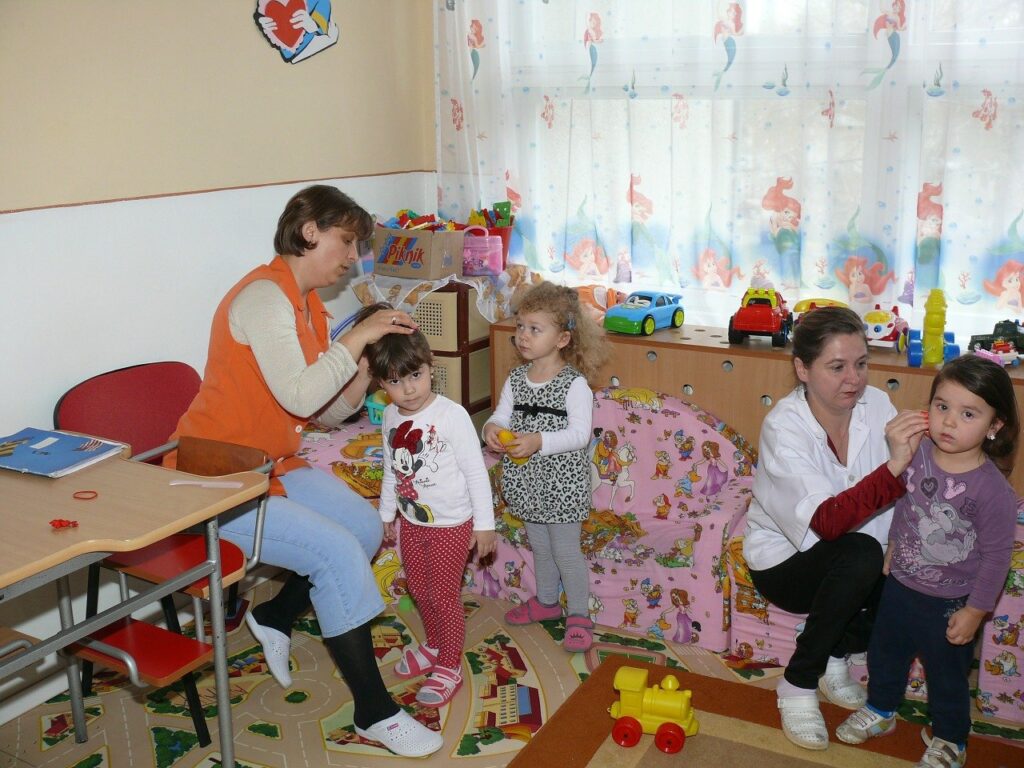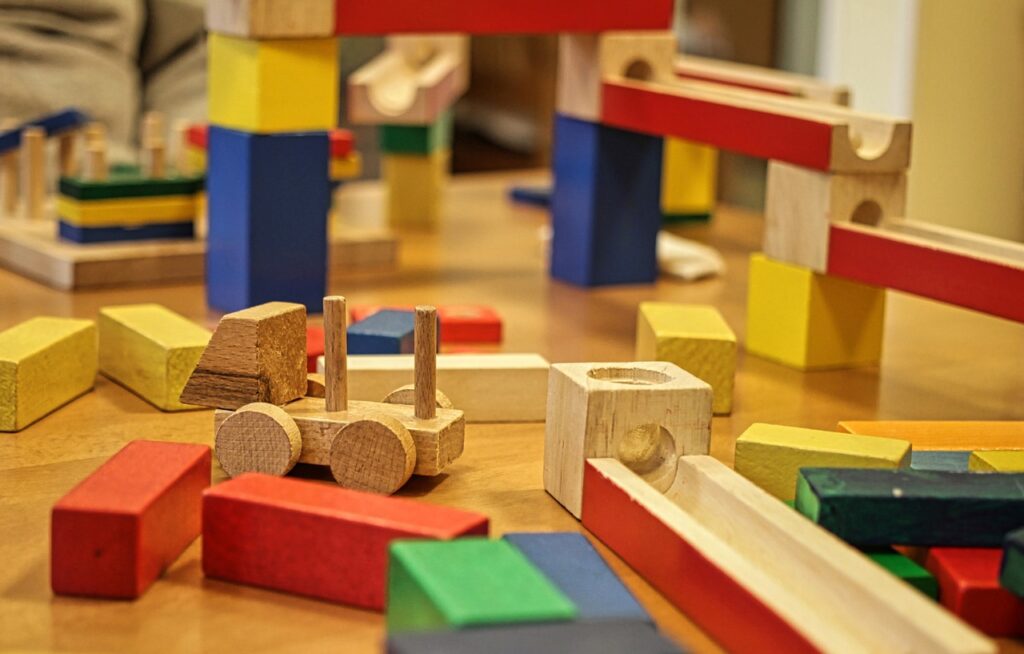So you've decided that it's time that your child should be in preschool. But how do you choose how many days per week is right for them? While there are certainly financial considerations and family considerations when you're making the decision, there are some child-based considerations as well.
Several factors determine whether your child would be best suited for a 2, 3 or 5 day per week program.
The easiest way to decide is to examine what your goals are for sending your child to preschool.
Is it because your child is shy and you'd like to have them socialise more with other children?
Do you feel that your child is too "attached" to a single caregiver, and you would like them to show a little more independence?
Are you interested in Kindergarten readiness (learning how to act in a classroom setting and get information from teachers)?
Would you like your child to make academic progress? Or is there some other reason?
Whatever your reason is, there are some universal truths about preschool:
- Every child is different—every single one. Every child handles preschool differently, and every child learns differently.
- Not every preschool is suitable for every child. Not even ours.
- It will not lastingly scar your child to send them (or not send them) to preschool. (I know, you weren't expecting me to admit that, were you?)
- In the right preschool, your child will learn faster than you ever imagined possible.
Why Are Preschool Programs Good for Your Child?
Preschool helps children:
- get new knowledge and skills – for example; they start learning more about numbers, letters and words
- improve their communication and social skills through playing and interacting with other children and adults
- make new friends and develop new relationships with adults
- develop physical skills – for example; children learn to balance on play equipment and practise fine motor skills like drawing with a pencil and cutting with scissors
- develop problem-solving and creative thinking skills
- develop responsibility, independence, confidence and self-worth through doing things like looking after their belongings and spending time away from home
- Get ready for the transition to school.
What Happens in a Preschool Program?
Preschool is all about learning through open-ended play and structured play activities that allow children to develop at their own pace.
Whether your child is finger painting, building a block castle, or singing with other kids, preschool helps your child increase her experiences, abilities and knowledge.
Preschool programs offer both indoor and outdoor learning experiences and opportunities for solo and group play.
Indoor learning experiences often include:
- painting, drawing and writing
- clay or playdough play
- puzzles and games
- construction – for example, with blocks or Lego
- books
- Sensory activities.
Outdoor learning experiences often include:
- sand play
- play in the natural environment
- carpentry
- water play
- dramatic play
- swings and climbing equipment.
Group learning experiences often include:
- stories and poetry
- dancing and singing
- playing with musical instruments
- drama and acting
- show and tell.
What Kinds of Preschools Are There?
In Australia, there are several different types of preschool programs and kindergartens. Qualified early childhood teachers run all preschool programs:
Sessional preschools: these offer programs ranging from two-and-a-half hours to seven hours a day, a few days a week.
Long day preschools: these programs run for an entire day and include a lunch program.
Preschool programs in long daycare or child care centres: some centres offer preschool programs.
Steiner, Montessori and Reggio Emilia preschools: these offer programs based on personal philosophies about children's learning. The program models and hours vary.
Three-year-old groups: these programs might include an activity group run by a trained coordinator or a qualified teacher at a kindergarten or preschool.
Most preschools operate in purpose-built facilities, although they can be mobile or online in more remote areas.
A volunteer parent committee might manage preschool programs, local government, state education department, independent school or private company.
How Many Days Should Your Child Be in Preschool?

So, which schedule is best for them?
We know you'd think that (since we run a preschool) we would always recommend the most expensive option, right?
Actually, no. (And all preschools earn more money for their two and 3-day program students per day than their five-day students, but that's immaterial to this discussion.)
2 Day Programs
In most schools, these are usually Tuesday/Thursday classes. These tend to be a good starting out spot for children who might be a little younger or have many other outside activities.
Interestingly, this is not generally where we recommend that kids who have separation issues go.
There are too many days between classes. It makes the separation adjustment more difficult for the child.
We often tell parents that two-day classes create a situation where going to school is the exception, and the parents see a lot more resistance from their kids to going to school.
A 5 day (or even a three day) per week child adjusts far faster than a child in a two-day program.
You might even want to start at a higher level and drop-down (yes, most schools will allow you to transfer between programs when there is available room, both up to more days per week and down to fewer days) to a more occasional day per week program after the transition period.
3 Day Programs
This is generally the most "safe" option for kids if you're not ready for a full time, five day per week program, and most kids start here.
Your child gets most of the benefits of a five-day program, including building relationships with other students and teachers, consistent routine and actual learning. However, you still get to have them all to yourself for a couple of days per week.
It is also an effortless transition for these children when they are ready for a five day per week program.
Because there are not so many days between classes, less time is taken with transition each day, and more can be spent on actual learning and development.
5 Day Programs
For parents who want their children to prepare for Kindergarten, focus on learning, and develop a consistent routine, a five-day program is what you should be looking for.
It enables children to settle into the routine, social structure, and daily lessons to learn and retain as much as possible before entering Kindergarten. It's all about consistency.
Children who attend five-day programs typically learn much faster than their three-day counterparts.
In other schools that use the curriculum used at Stages Academy, five-day program children who start the program early and are consistently exposed to the curriculum are reading at a 2nd-grade level by entering Kindergarten. That's pretty impressive if we do say so ourselves.
When Can Children Go to Preschool?
In general, children can go to preschool when they're four years old or in the year they turn four. However, some preschools in some states and territories also offer programs for three-year-olds.
Is Your Child Ready to Start Preschool?
Once your child nears or passes age 3, you may be wondering if they are ready to start preschool. Unfortunately, many parents aren't sure how to make this decision.
Determining whether or not your child is ready for preschool is a big decision, but there are some critical indicators explained below that can help you decide.
Ask yourself the following questions to help you determine if your child is ready to take that first step into a classroom.
How Old Is Your Child?
For the most part, educators define preschool as the two years before a child begins Kindergarten.
Some preschools set a minimum age for when they'll accept kids—usually, they have to be three by December of the academic year, although some will allow children as young as 2 to attend.
Parents of children who have late birthdays (that is, after September 1) sometimes delay starting preschool for a year or enrol them in a preschool program for an extra year until they are eligible or ready for Kindergarten in their school district.
In these instances, kids with late birthdays may attend preschool from age three until six or, if they delayed a year, from age four until 6.
Age is only one of many factors that parents and preschools should consider when deciding if and when a child is ready for preschool.
Is Your Child Potty Trained?

Some preschools require that their students be potty trained, or at least well on their way.
Preschoolers also should have some knowledge of self-care, including putting on their shoes and their coats. They also should know how to pull up and fasten their pants as well as wash their hands.
Does Your Child Follow Directions?
There usually aren't super strict rules in preschool, but it is expected that your child can follow simple instructions.
Preschoolers are usually asked to clean up, follow snack guidelines, walk-in line with the rest of the class, and other assorted jobs.
If you sense these requirements might be problematic, you can start giving your preschooler easy tasks they can do on their own such as setting the plates at the dinner table or helping bring in the mail.
The job itself isn't as important as the routine. Pick simple chores that can be completed every day.
Can You Understand Your Child's Speech?
3-year-olds aren't expected to have perfect speech. However, people should be able to understand what they're trying to say.
Likewise, your preschooler should be able to hear and understand other people.
Typically, preschool-ready children speak in simple sentences of three to five words. They also can describe something that has happened recently, such as a trip to the library or a visit to the zoo.
If you suspect your child has a speech or hearing issue, talk with your pediatrician. They should recommend a speech therapist or an audiologist who specialises in working with young children.
Can Your Child Handle Transitions?
Most preschools operate on an established schedule. For instance, they might move from carpet time to playtime, to craft time, to snack time, and children are expected to transition from one activity to the next smoothly.
If your child is not good at transitioning quickly, especially when they are engrossed in an activity they enjoy, transitioning is something you'll want to work on before preschool starts.
A vital skill preschoolers must know is to move from one activity to the next as a class.
Many times, giving children a little advance notice, such as telling them, "We'll have a snack after we finish colouring this page," will help them learn to make the switch more easily from one activity to the next.
You also can establish a simple routine at home that requires them to learn how to transition from one thing to the next even when they don't want to.
Consider using a simple wall chart that shows the order in which activities occur, like meals, playtime, outdoor time, storytime, and snacks.
These charts serve as reminders for what comes next in their day and prompt them that they need to move on to the next activity.
Can Your Child Separate from You?
For kids who have been in daycare, separating from parents is often a no-brainer. But for children who have had one parent at home with them all day, separation anxiety can be an issue.
If you've never left your child before, or they tend to get upset when you do, you may want to start working on this skill.
Leave them with a friend or family member for short periods while you run to the grocery store.
You also could try leaving your child with a neighbour while you go for a quick walk around the block.
The key is that your child learns to separate from you—and trust that you will return—so that the drop-off at preschool is not filled with panic.
In mind, even kids who are used to separating from their parents may still cry or be apprehensive initially about being left at preschool. With time, though, this uncertainty or worry should subside.
While it's common for some children to be upset at drop-off, they will usually settle quickly once their parent has left.
How Well Do They Interact With Other Kids?
As you consider whether or not your child is ready for preschool, think about how much they have socialised with other children, as well as whether or not they can interact with other children inappropriate ways.
If your child has been around other kids frequently, such as living with siblings, at church, in playgroups, or at the park, you probably have a pretty good idea of how they respond to other kids their age.
Observing how well they play and interact with siblings, neighbours, and cousins can provide some insight, too, in determining preschool readiness.
That said, learning social skills is also a key focus in preschool. So, if your child has not had much interaction with other children, you don't need to worry.
Preschool provides the opportunity for them to get to know and play with other children their age.
Suppose you're worried about their social readiness, though. In that case, you can arrange playdates, sign up for activities, or attend community events like storytime at the library or open gym at the community centre to give them some practice socialising with peers.
Why Preschool Matters
There's increasing evidence that children gain a lot from going to preschool. At preschool, they become exposed to numbers, letters, and shapes. And, more importantly, they learn how to socialise -- get along with other children, share, and contribute to circle time.
Statistics show that most kids attend at least one year of preschool: According to the National Institute for Early Education Research (NIEER), more than two-thirds of 4-year-olds and more than 40 per cent of 3-year-olds were enrolled in a preschool in 2005.
Children who attend high-quality preschool enter kindergarten with better pre-reading skills, richer vocabularies, and more vital basic math skills than those who do not.
Every child should have some group experience before he starts Kindergarten. Music and gymnastics classes are great, but preschools do that less formal classes don't teach kids how to be students.
Your child will learn how to raise her hand, take turns, and share the teacher's attention.
What's more, she'll learn how to separate from Mommy, who often stays in a music or gym class. All of this makes for an easier transition to Kindergarten.
Kindergarten teachers will tell you that the students who are ready to learn come into school with good social and behaviour-management skills.
Educators have recognised the importance of giving kids some form of quality early education that about 40 states now offer state-funded pre-K programs.
Conclusion
So, what's suitable for your child? Only you can answer that question. Just keep in mind that no matter what road you choose, you're not stuck with that decision.
People change programs (and even schools) all the time. So, don't be afraid to try something if you feel that it's the best road for your child. Challenging them might be what they need.
We are always willing to work with parents to find the best fit for their child, even if it means adding or subtracting days of the week from their programs. Any good preschool should be willing to do the same.
3 day programs – This is generally the most “safe” option for kids if you're not ready for a full time, 5 day per week program and most kids start out here.
Currently all 3 & 4 year olds are entitled to up to 15 hours of free childcare and early education a week for up to 38 weeks a year. Children can access this entitlement in school, Nursery classes, private Day Nurseries, Pre-schools and with Childminders.
Attending preschool is not mandatory in the United States. Compulsory education for children begins somewhere between the ages of five and eight, depending on the state. It's totally fine, and extremely common, to have your children skip preschool or pre-K and keep them at home until they're ready for kindergarten.

